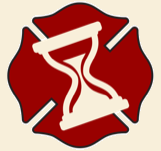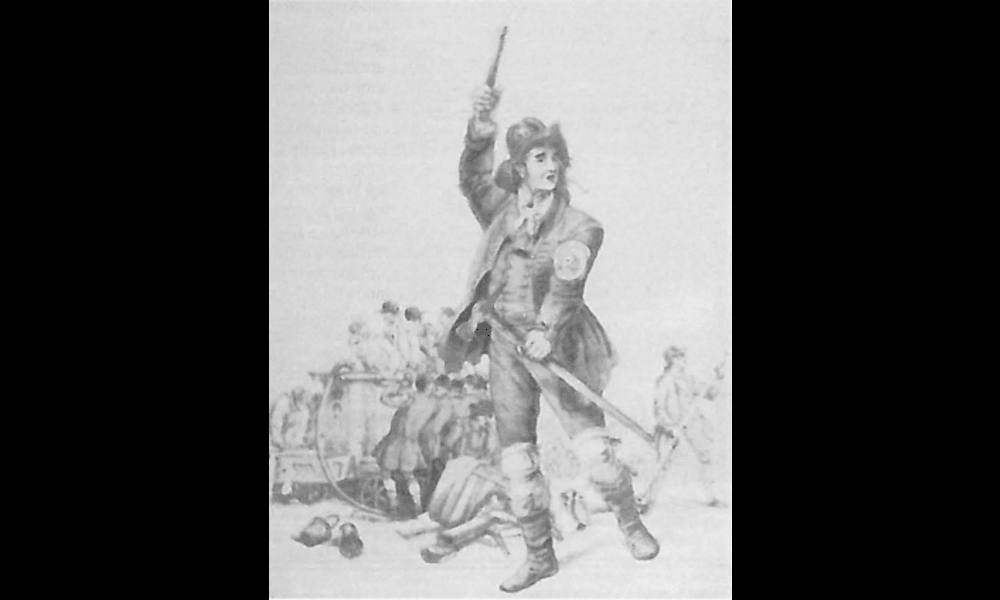The Sun Fire Company (1801-1863)
The Sun Fire Company was founded on Friday, February 13, 1801. Like the Union Fire-Club or the Governor’s Fire Company, this society was composed mainly of the town elite, but it was more of a prestigious club, although an effective salvage company.
The first President was John Liddell, who was elected for a term of one year. The original founding members numbered 35, and their names were as follows:
|
John Liddell |
Charles Hill |
William Milward |
|
James Kerby |
Adam DeChezeau Jr. |
Alexander Fiddis |
|
Belcher Boyles |
David S. Clarke |
James Forsyth |
|
Henry Taylor |
Samuel Prescott |
Alexander Smith |
|
J. C. F. Bremner |
Jacob Smith |
Joseph Marchington |
|
H. Newton Jr. |
James Bell |
John MacMaster |
|
Stephen W. Deblois |
Michael Tobin |
Richard Tremain |
|
George L. Deblois |
Richard Best |
James Fergus |
|
James Grant |
John W. Morris |
John W. Pyke |
|
R. W. Christie |
James Pyke |
William G. Anderson |
|
E. B. Fitzgerald |
Thomas Hill |
Robert Lyons |
|
John Owen |
James Butler |
Several members, unfortunately, did not leave any biographical information although we have a few details because they generally also belong to other societies. Michael Tobin was a butcher; later members such as Henry Austen and his brother Thomas were a ship chandelier and a coppersmith, respectively. The following members have detailed biographies available online: Enos Collins (Joined February 9, 1810), Samuel Cunard (Joined May 12, 1809), Stephen Wastie Deblois (Joined February 20, 1801 – founding member), John Howe (Joined August 14, 1807), James Forman (Joined February 14, 1817), Sir Edward Kenny (Joined February 10, 1837), Lawrence Hartshorne Jr. (Joined August 9, 1805), William Lawson (1813 roster), William Murdoch (Joined February 13, 1824), Temple Foster Piers (1813 roster), and Richard Tremain (1813 roster).
Enos Collins
Enos Collins was born in Liverpool on September 5, 1774, to Hallet Collins and Rhoda Peek. He worked on one of his father's ships as a young boy, and before the age of 20, he was captain of the schooner Adamant, which sailed between Bermuda and Liverpool. Collins eventually moved to Halifax, a town that was more suited to his ambitions, where he was established by 2011. He was a very successful businessman and was about to move out of the province to pursue his goals when he was offered a position on the Governor's Council in 1822. In 1825, he founded the Halifax Banking Company with a group of merchants, but lost the monopoly in 1832, when the Bank of Nova Scotia was established. He spent the last 30 years of his life in semi-retirement and died in Halifax on November 18, 1871 (Barker and Sutherland 2003)
Samuel Cunard
Samuel Cunard was born in Halifax on November 21, 1787, to Abraham Cunard and Margaret Murphy. Self-educated for the most part, Samuel trained as a clerk at the Royal Engineers' lumber yard until 1812, when A. Cunard and Son was registered to trade timber, but he also traded other goods. The same year, as war was declared by the United States, he volunteered in the 2nd battalion of the Halifax Regiment of Militia, where he rose to the rank of Captain. He had joined the Sun Fire Company in 1809 and was its president by 1821; The same year he was appointed Fireward, a position he held until 1835. However, Samuel Cunard is known for his successes as a ship owner; a low estimate put at 76 the number of ships he registered between 1817 and 1850. He died in London on April 28, 1865 (Blakeley, Cunard, Samuel 2003).
John Howe
John Howe was born in Boston on October 14, 1754, to Joseph Howe and Rebecca Hart. He witnessed the Boston Tea Party and was an apprentice printer when the revolution started. Briefly in Halifax in 1776, he later moved there permanently around 1779, after being evacuated by the British with other loyalists (J. M. Beck 2003). In 1780, Mr. Howe began a weekly newspaper titled Halifax Journal, which remained in the family until 1819 (J. N. Grant 1982). In 1801, following Anthony Henry’s death, John Howe became the king's printer, and thus, the publisher of the Nova Scotia Royal Gazette. He joined the Sun Fire Company on August 14, 1807, and became a spy the same year, sent by the British to the United States. He died on December 29, 1835 (J. M. Beck 2003).
William Bowie
William Bowie was born around 1783 in Inverness, Scotland, and came to Halifax in 1803. Said to be well-educated and a good businessman, he founded the company Bowie & DeBlois, which made him a fortune (MacDonald 1903). In 1815, he was a steward at a public dinner to celebrate the British victory at the battle of Waterloo (Akin 1895, p. 169). He was elected President of the North British Society in 1816 (MacDonald 1903, p. 136), and his firm was viewed as one of "the principal auctioneers" in Halifax (Akin 1895, p. 182). However, his life was unfortunately cut short in a duel, in 1819, when he was mortally wounded by a pistol ball fired by Richard Uniacke (see p. ). This duel is what occupies most of what was ever written about William Bowie, unfortunately.
Edward Kenny
Sir Edward Kenny was born in County Kerry, Ireland, in July of 1800, to Jeremiah Kenny and Johanna Cream. Raised in poverty, he moved to Cork with his brother when he was a young man and became a clerk for James Lyon, who had a store in Halifax and travelled there every spring. He was living in Halifax early in the 1820s and became president of the Irish Charitable Society, and he joined the Sun Fire Company on February 10, 1837. Kenny was instrumental in the incorporation of Halifax in 1841 and became its mayor in 1842. The following year, he was appointed to the Legislative Council and became an advocate for a Canadian confederation in the 1860s, which resulted in a appointment to the new federal cabinet. Edward Kenny died in Halifax on May 16, 1891 (Sutherland 2003).
William Young
William Young was born in Falkirk, Scotland, on 8 September 1799, to John and Agnes Renny. Educated at the University of Glasgow, he followed his family when they came to Halifax in April of 1814 and worked at his father's business. In 1815 he a business partner to James Cogswell and joined the Sun Fire Company on February 12, 1819. From 1820, he was an apprentice in the law firm of Charles Rufus and Samuel Prescott Fairbanks; he opened his own practice in 1826, after being admitted as a barrister. He entered politics and was elected to represent Cape Breton in 1832 and ran an insurance business with his brother George between 1834 and 1850. He was also premier of Nova Scotia between 1854 and 1857. He retired in 1881 and died on 8 May 1887, in Halifax (Nova Scotia Archives 1973).



